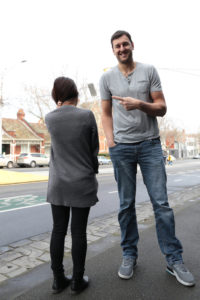Alright, folks!
Joining us on the couch today is Alan Kohler, the renowned Australian financial and newspaper journalist! Aside from being the founder of The Constant Investor and co-host of The Money Café podcast, Alan has a wealth of knowledge and experience (which started since 1979, mind you) in the financial sector.
To give you an idea, Alan was the Editor of The Age and CEO of Australian Independent Business Media Pty Ltd (which published the Eureka Report and Business Spectator). Currently, he’s a Finance Columnist of The Australian, the Financial Reporter for ABC News and the host of ABC Inside Business (for 12 years) AND like us, has his own show on Qantas’s Inflight Radio called Talking Business with Alan Kohler.
And this is not even his entire resume!
(So you’re in for some SERIOUS learning.)
Alan and the boys discuss:
- How did Alan flourish in an industry he once had no interest in or knowledge of?
- What was it like to live through the digital change (and how did he leverage off it to lead a successful career)?
- What did he do to stop Financial Advisors from operating in a commission based system?
- Yesterday’s US Federal Reserve Board Meeting and it’s possible implication to the Australian Economy
- What is Donald Trump’s Impact on the economy?
- How is the Australian Economy fairing?
- Will the demand for Sydney and Melbourne markets continue?
- What and why is the difference between total GDP numbers and GDP per capita matter?
- How does inflation impact on interest rates and why are the Central Banks of the World care about it so much?
- What is the reason for increased asset prices (and does Alan think it’s a good thing)?
- Potential risks with asset selection in outer suburbs
- Will there be an interest rate rise this year?
- How much of an issue is housing affordability in terms of predicting the market?
Oh, and these are the books (aside from his own) Alan mentioned:
- Guns, Germs and Steel, Jared Diamond
- Competitive Advantage of Nations, Michael E. Porter
And of course, here are the other resources mentioned in the today’s show:
- Making Money by Alan Kohler – Find out more here
- Free Tickets to Sydney Property Buyer Expo – 20 – 22 October 2017 (Code: PROPERTYCOUCH) – Secure your tickets here
- LocationScore’s Webinar on Property Hotspots & How to Find Them – Choose a Session Time here or on the form below:

 Subscribe On Itunes
Subscribe On Itunes Subscribe On Android
Subscribe On Android

